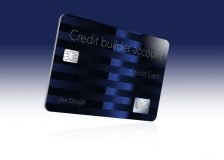6 types of personal loans (and how they can help you)

A personal loan is a loan that you can get from banks, credit unions, and online lenders. They vary based on your credit and amount of time for repayment.
There are six main types of personal loans. It’s helpful to know the differences so you can understand which is right for you and your unique financial situation.
- Unsecured personal loans
- Secured personal loans
- Variable-interest loans
- Fixed-rate loans
- Personal lines of credit
- Debt consolidation loans
Looking for a loan? Knowing where your credit stands can help you understand if you qualify. Give us a call for a FREE credit report consultation
Unsecured personal loans
Unsecured personal loans are installment loans. This means you’ll borrow an amount of money and repay it in fixed monthly payments, with interest, until it’s paid off.
Unlike other types of installment loans such as auto and home loans, unsecured personal loans don’t use the item you’re purchasing as collateral.
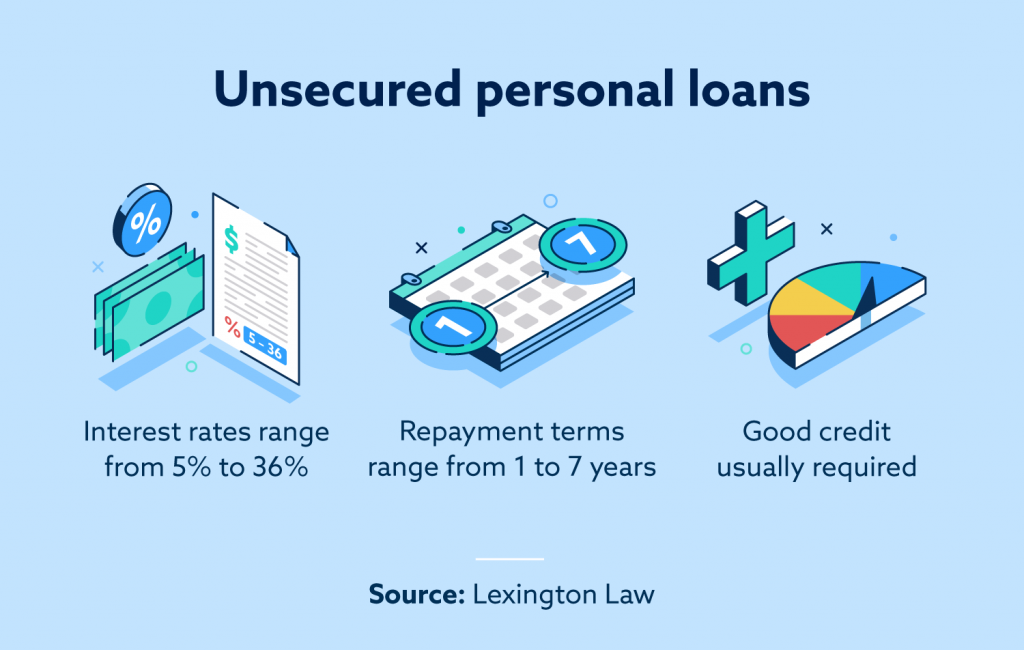
Instead, lenders give these based on your creditworthiness. Lenders will look at your credit score, income, and debt-to-income ratio to determine if you qualify.
- Interest rates range from 5% to 36%
- Repayment terms range from 1 to 7 years
- Good credit usually required
Secured personal loans
Secured personal loans give lenders ownership towards an asset. This makes it collateral, meaning if you don’t repay the loan in time, the lender can collect the asset to make up for unpaid funds.
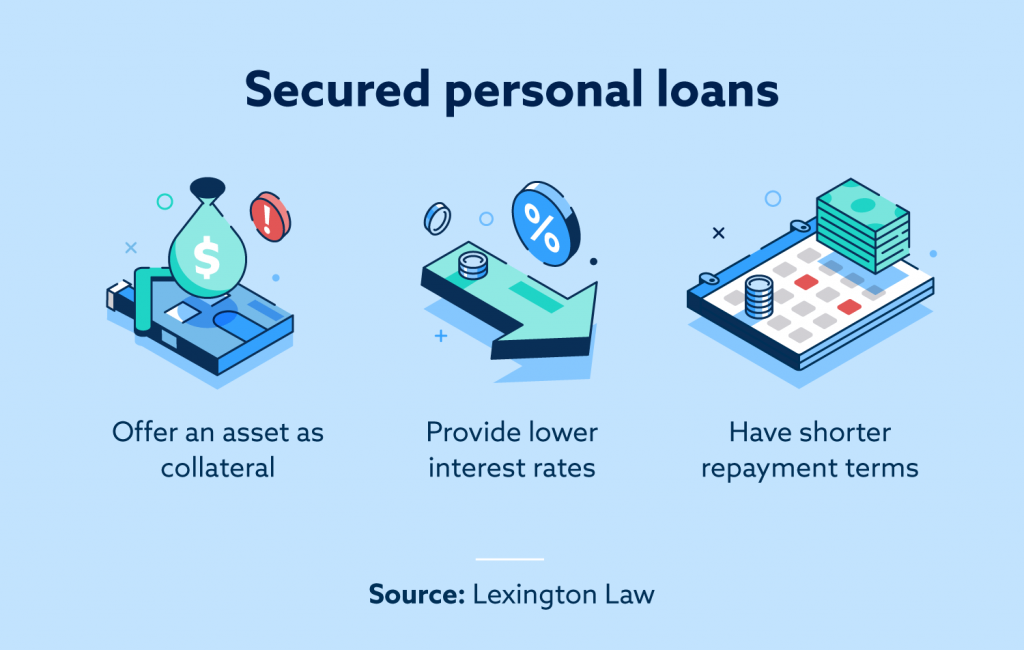
Because lenders can seize collateral in exchange, there’s less risk for them. This makes secured loans easier to qualify for, even if you don’t have good credit. Secured loans can be costly for borrowers because of this.
- Lower interest rates
- Offer an asset as collateral to your lender, higher risk for the borrower
- Shorter repayment terms and higher monthly payments
Variable interest personal loans
With a variable interest loan, your interest rate may change as market interest rates change. This will affect your monthly payments, given they’re mixed with principal and interest.
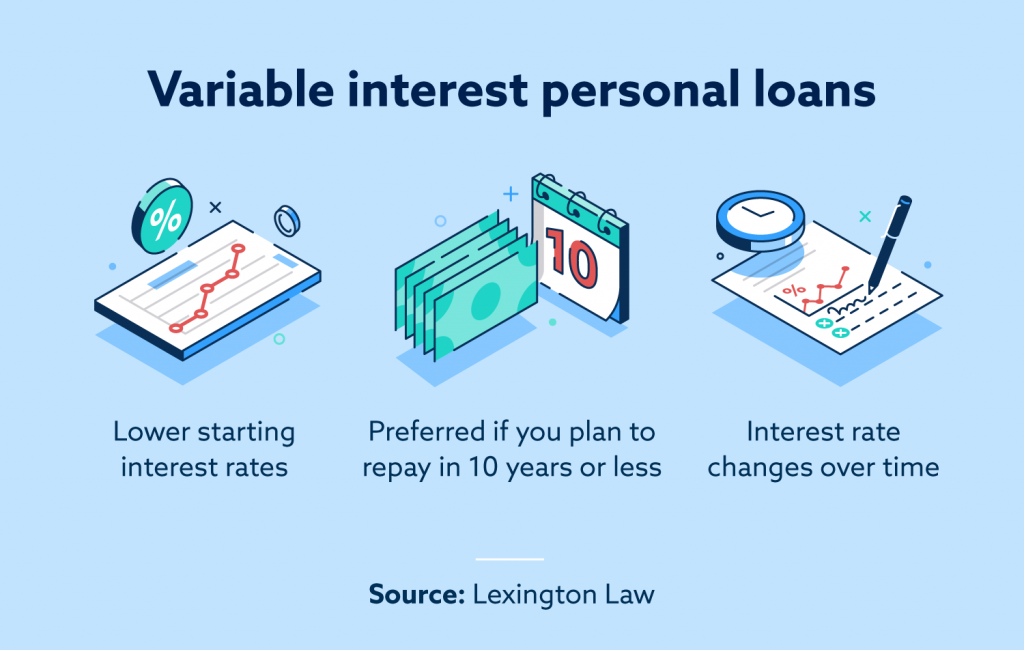
Some lenders give variable interest loans with a line of credit. This means the lender will approve you to borrow up to a certain amount.
- Lower starting interest rates
- Changes over time
- Preferred if you plan to repay in 10 years or less
Fixed-rate personal loans
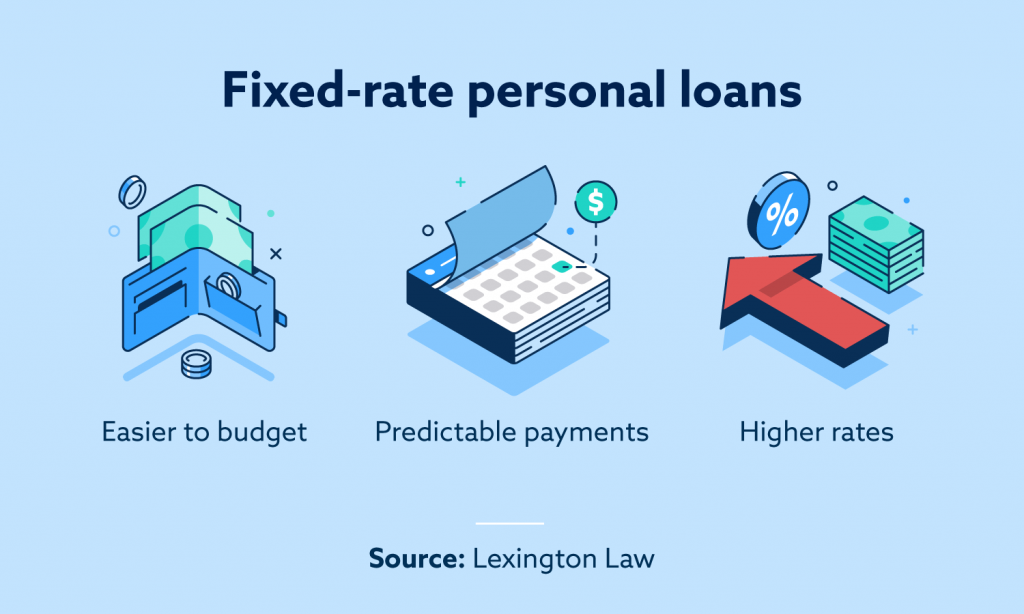
The majority of personal loans are offered with fixed rates, so the interest rate and payment will remain steady over time. This works best if you like to budget with consistent payments each month. With a fixed-rate loan, your payment will not change over time.
- Predictable monthly payments
- Easier to budget
- Higher rates
Personal lines of credit
Lenders offer lines of credit, secured or unsecured, to borrowers that have met the credit requirements. It’s typically revolving credit, meaning it doesn’t have a fixed number of payments.
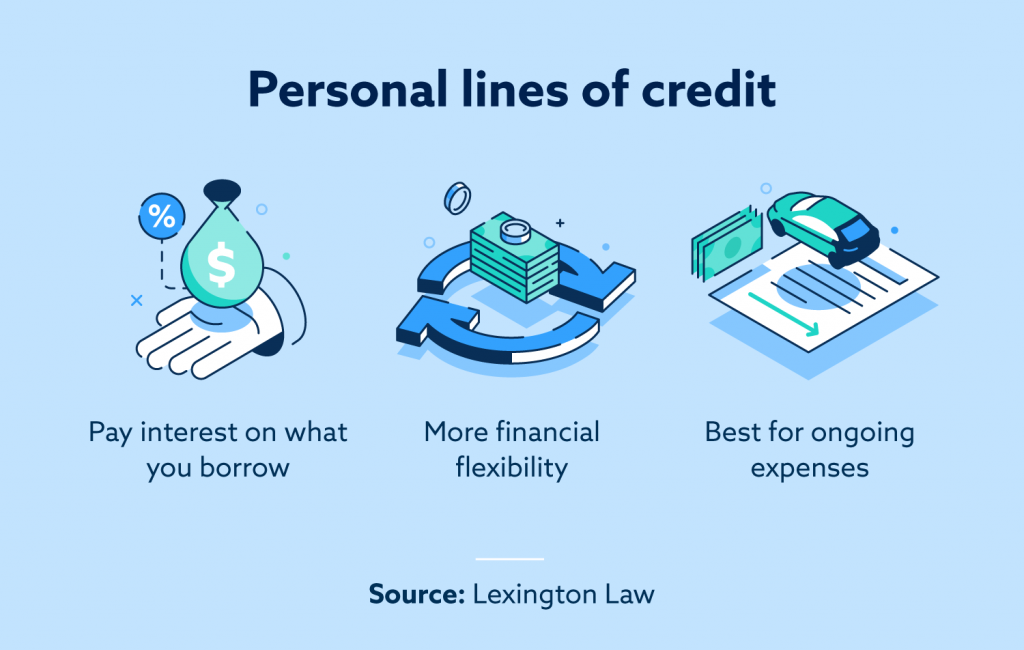
As a general rule, do not use a personal line of credit for expenses that you need to pay off over a longer-term. Similar to a credit card, you pay interest only on what you borrow. If you happen to meet the requirements set by the institution, you may not have to offer collateral.
- Added flexibility
- Pay interest on what you borrow
- Best for ongoing expenses
Debt consolidation loans
A big reason many people take out a personal loan, to begin with, is to consolidate debt. This can include credit card bills, other loans, or miscellaneous bills and medical expenses.
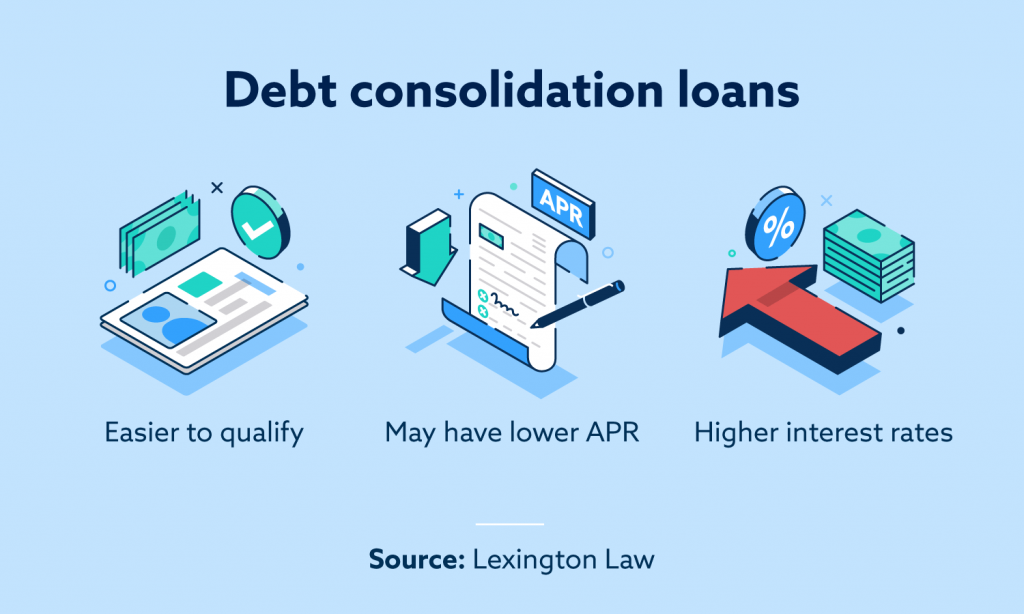
With a debt consolidation loan, you roll all of your debts into one loan and make one payment with one interest rate. These loans are easier to qualify and have higher interest rates. You can also save on interest if your new loan has a lower APR than your existing loans.
- Easier to qualify
- Higher interest rates
- Usually lower APR than your existing loans
How to get a personal loan with bad credit
In order to begin the application process, make sure you have a proof of income and check your credit. Understanding where your credit is at can help you determine whether or not you’re likely to get approved for a loan. It can also give you an idea of what your interest rate will look like.
Even if you have bad credit, you may still be able to get a personal loan. You may have to get a cosigner. You also have to understand that your interest rate will be higher and that your lender of choice may not work with you, so you may have to go with someone else.
Once you have the information you think you need and are comfortable with your credit, it’s time to find a lender.
Why use a personal loan?
Personal loans can be used for just about anything, but some of the big reasons include:
- Consolidating credit card debt. Doing this can save money on interest since interest rates for personal loans tend to be lower than credit card interest rates. It can also be easier to consolidate multiple credit card payments into one payment.
- Emergencies that require extra cash to cover it, such as an emergency visit to the doctor or for unexpected car repairs.
- Renovating a home, paying for a wedding or honeymoon, or for big purchases like appliances.
In some situations, you can even use a personal loan to improve your credit. This is a good option if you have accumulated a good amount of credit card debt and don’t think you can manage repayment on your own, in a reasonable amount of time.
Personal loans vs. credit cards
Personal loans differ from credit cards because:
- They come with a fixed payment plan (also known as an installment account).
- They are paid off in a specific time frame, usually about 2 to 5 years.
- Lenders offer personal loans based on your credit score, employment, and income.
Depending on your credit score, your interest rate will vary – usually somewhere between 6% and 36%. If you decide to apply for a personal loan, you’ll want to make sure your credit is in as good as shape as possible so that you get a lower interest rate.
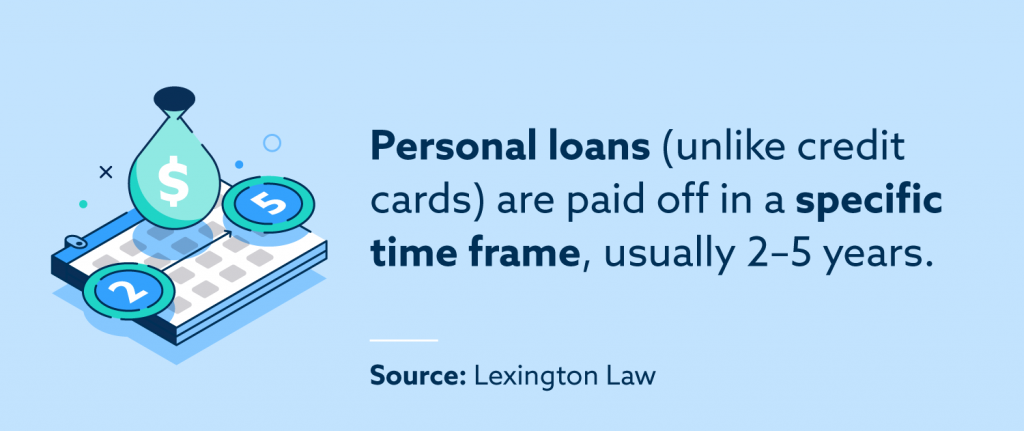
Before getting a personal loan, it helps to understand what the requirements are. It’s also important to determine whether the payments will work with your finances.
